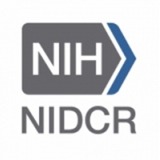NIDCR T32 and T90/R90 Training Programs
Program Description |
Program Description NIDCR T32 and T90/R90 training programs funded under T32 PAR-20-044 and T90/R90 PAR-20-056 provide support to institutions to encourage innovative and novel research training opportunities for individuals interested in pursuing independent research careers in dental, oral, and craniofacial research. The training programs provide students and postdoctoral trainees with a robust curriculum of study, programmatic activities and research experiences that will facilitate development toward independent research careers. |
Eligibility |
Eligibility The T32 and T90 component of the paired T90/R90 program are Ruth L. Kirschstein National Research Service Award (NRSA) programs, which support U.S. citizens, permanent residents, or non-citizen nationals. The R90 component of the T90/R90 supports research education opportunities for non-US citizen, foreign-trained dentists. |
Length |
Length Up to 5 years |
Award Benefits |
Award Benefits Individual Institutional T32 and T90 Training grants include one or a combination of the following research training opportunities:
The R90 component of T90/R90 programs provides:
NIDCR will provide funds to help defray other research training expenses, such as health insurance, staff salaries, consultant costs, equipment, research supplies, and faculty/staff travel directly related to the research training program. The most recent levels of training related expenses are described on the Ruth L. Kirschstein National Research Service Award (NRSA) site. Visit NIH Grants Policy Statement: Ruth L. Kirschstein National Research Service Awards for more information. |
How to Apply |
How to Apply See Current Institutional Training Programs for the contact information of the training grant program director and a brief description of each T32 and T90/R90 program. Dual degree students, Ph.D. students and postdoctoral scientists should contact the training director at the institution(s) they are interested in to inquire about available opportunities. |

